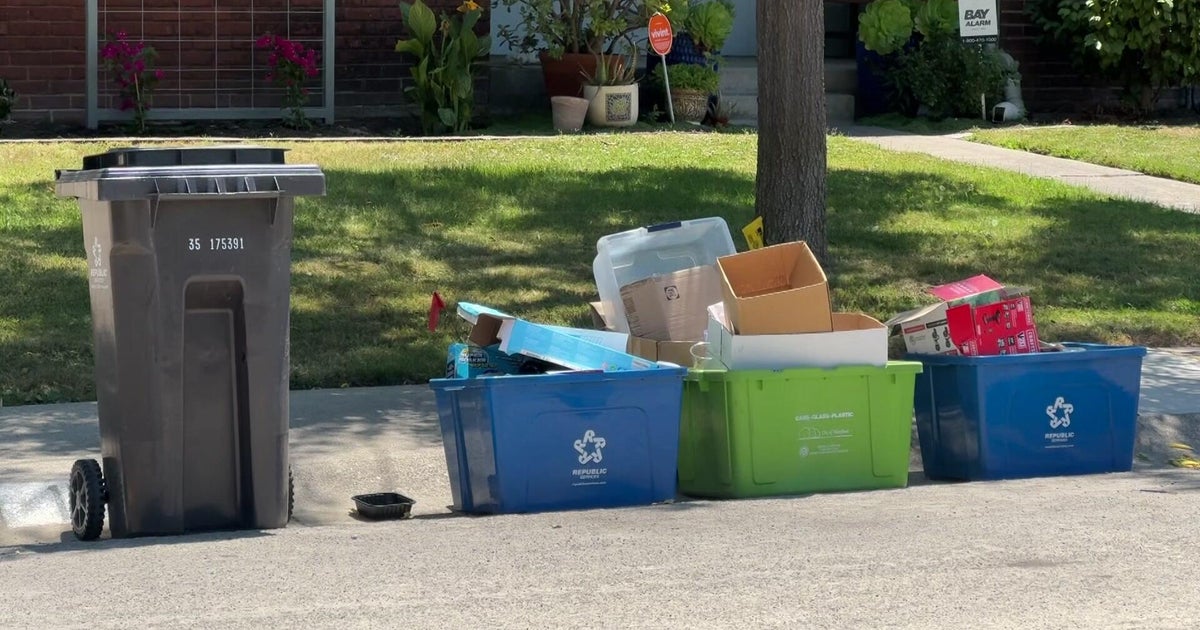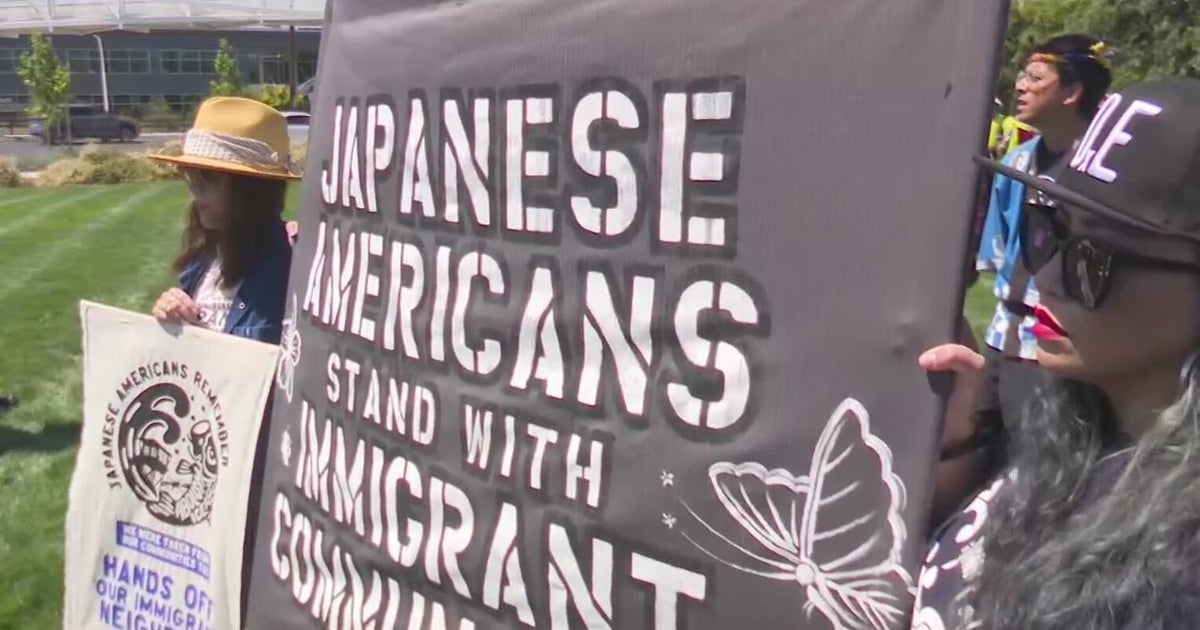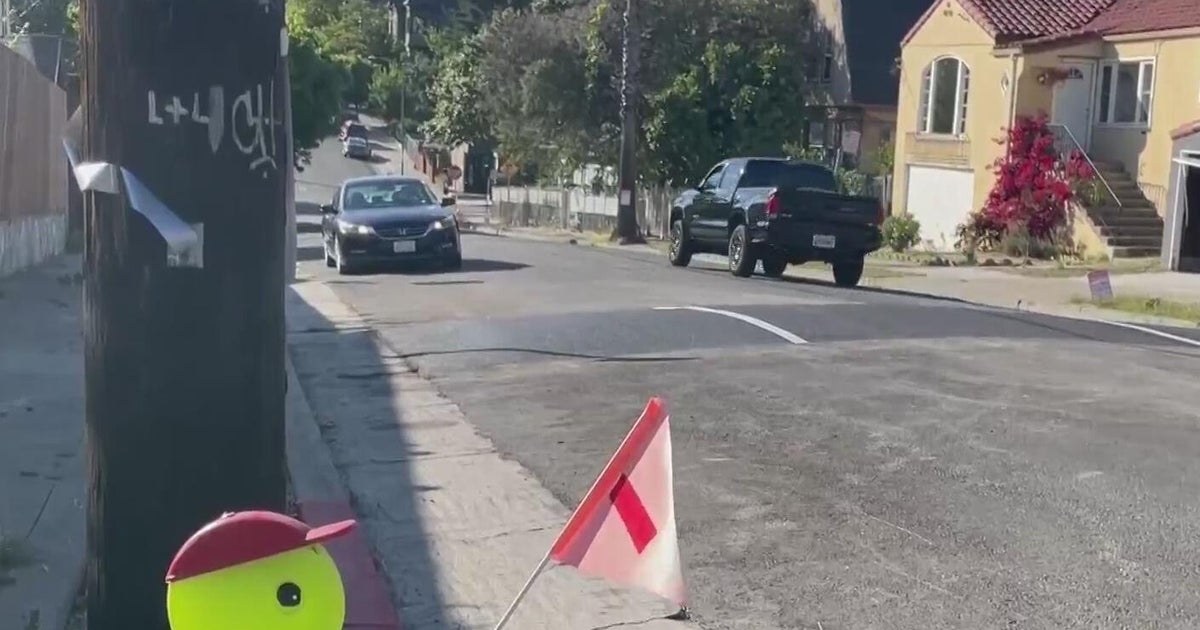Half Moon Bay's Famed 'Farmer John' Wins Right To Grow Pot
HALF MOON BAY (CBS SF) -- 'Farmer John' Muller is best known for growing some of Half Moon Bay's biggest pumpkins, but an economic downturn has him considering a crop rotation of a different type.
Muller had been contemplating switching to cultivating marijuana, but he found he had opposition to those plans. Those opponents forced the issue to be placed on the ballot in the form of Measure GG.
COMPLETE ELECTION COVERAGE: Complete Election Coverage -- Stories, Video Reports And Results
On Tuesday, voters passed GG by a 51.2 percent to 48.8 percent margin.
The "yes" vote authorizes the city to allow marijuana nurseries to operate in the agricultural/exclusive floriculture zoning district under certain regulations. A "no" would have blocked marijuana cultivation.
"This plant (marijuana) may be a way to stay in agriculture," Muller told KPIX 5 earlier this year.
Pot was also on the mind of voters elsewhere in the Bay Area. Seven local ballot measures, targeting additional taxes levied on the Bay Area's legal marijuana industry, were approved by voters in two Bay Area counties.
In Solano County, two pot tax measures passed easily. Measure C in Suisun City passed with 74.78 percent of votes and Measure E in Benicia passed thanks to 76.17 percent of the vote.
The Suisun City measure will tax up to 15 percent of gross receipts and $25 per square foot of space used for commercial cannabis activities, with revenue going to general city services. The measure needed a majority vote to pass.
The Benicia measure is a tax of up to $10 per canopy square foot for commercial cannabis cultivation and six percent of gross receipts for general city services. It also only needed a majority vote to pass.
Meanwhile, voters in Santa Clara, Morgan Hill and Mountain View overwhelmingly approved cannabis businesses tax measures.
All three taxes passed with more than 75 percent approval, according to preliminary vote counts, preparing the cities to take their next steps toward the sale and cultivation of marijuana.
Santa Clara and Morgan Hill will be able to implement a maximum 10 percent tax on gross receipts and Mountain View will cap its tax at 9 percent.
Mountain View will not collect revenue from cultivation, while Morgan Hill will begin taxing at $10 per square foot and Santa Clara at $25 per square foot.
The measures required simple majorities to pass, and received resounding support from voters. Santa Clara expects its tax to bring in about $2.2 million, Mountain View about $1 million and Morgan Hill between $340,000 to $750,000.
Santa Clara Vice Mayor Kathy Watanabe said in mid-October that the measure is not designed for marijuana to "take over the city," but to prepare for its future role in the area's economy.
Revenue from the cannabis business taxes will be directed toward improving infrastructure and public services like police and emergency response.
In Contra Costa County, a measure to tax marijuana businesses also won by a wide margin. According to the unofficial results, more than 72 percent voters said yes to Measure R.
The 4 percent tax will be levied on gross receipts at marijuana businesses in unincorporated parts of the county, plus $7 per square foot of garden canopy for growing operations.
In San Francisco, Proposition D, the proposed additional tax on cannabis businesses earning revenues within the city, was approved by voters, earning 65.91% of votes cast.
"Prop D's passage represents a significant boost to our Equity Program, to patient care, and to streamlining our permitting process for cannabis businesses," said Supervisor Malia Cohen, who authored the legislation. "I look forward to continuing to work with business owners, with neighbors, with the medical marijuana advocates, and with our brothers and sisters in labor to stabilize the industry. With this support, every entrepreneur will have equal opportunity to access and benefit from cannabis legalization."
Proposition D was expected to generate approximately $10 Million in revenues, which will be directed to general fund. Tax on cannabis businesses will be collected starting in 2021.



